Tourist Spots of Sapporo
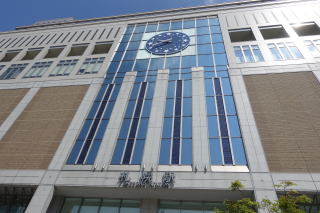 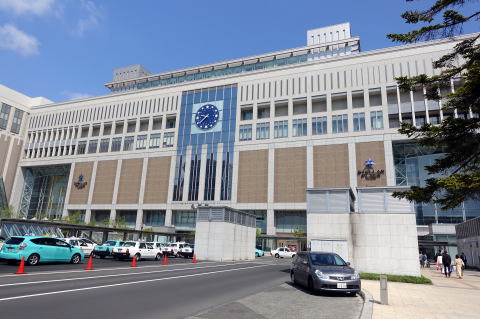
South side of JR Sapporo Station
Sapporo Station is a railway station, and is served by Hakodate Main Line
and other lines of Hokkaido
Railway Company (JR Hokkaido), and is also connected to the Subway Sapporo
Station.
Sapporo Station is the starting point and terminus for most limited express
services operated by JR Hokkaido.
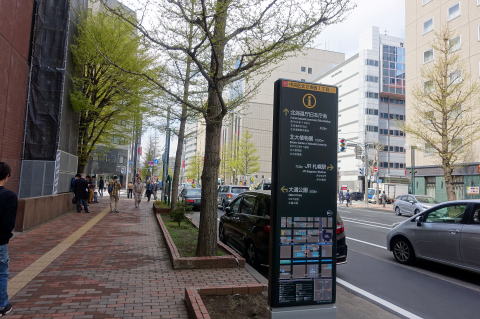 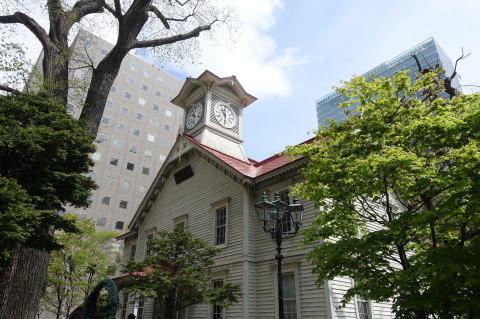
(L) A map information panel that is placed at the city center (R) Sapporo
Clock Tower
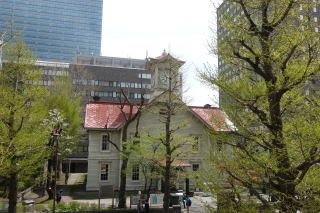 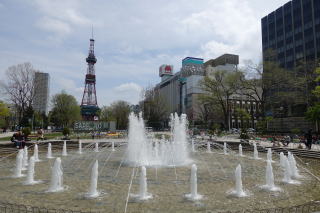 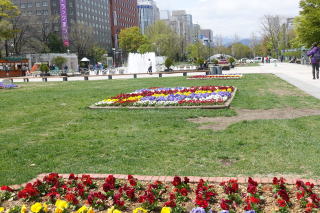
(L)Sapporo Clock Tower (M) The Sapporo TV Tower, 147 m high, is located
on the ground of Odori Park (R) Odori Park
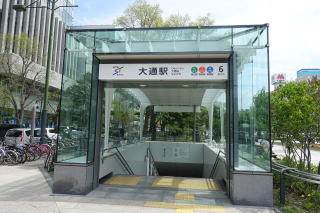 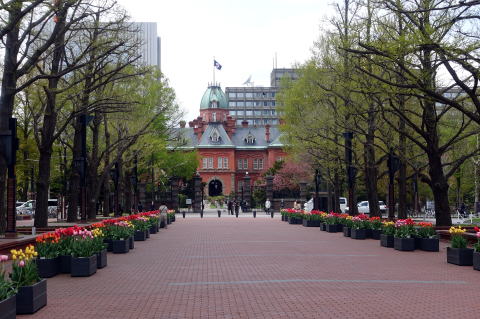
(L) The entrance to Odori subway station: It is covered with transparent
walls considering the surrounding landscape.
(R) Former Hokkaido Government Office Building
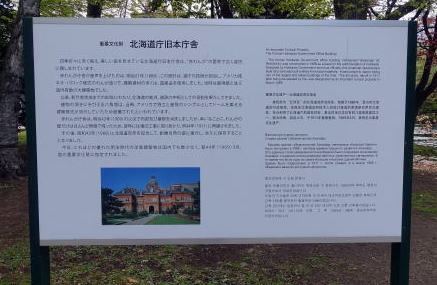 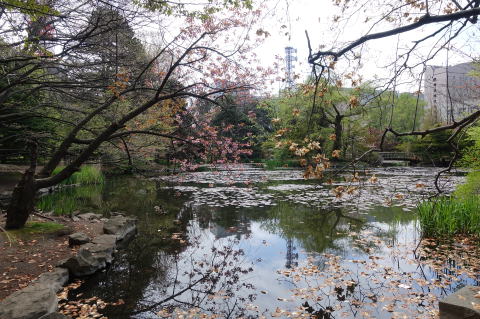
(L) A guidance panel of the Former Hokkaido Government Office Building
(R) A pond in the garden of Former Hokkaido Government Office Building
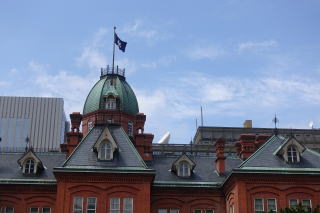 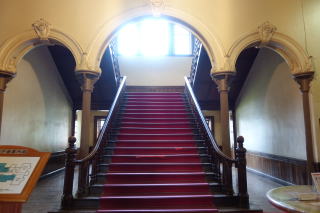 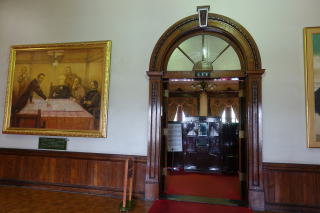
Former Hokkaido Government Office Building: The roof, stairway and an exhibition
room
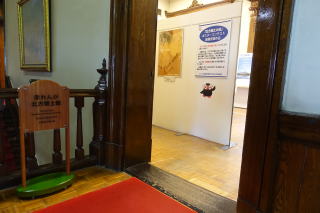 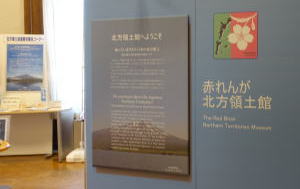 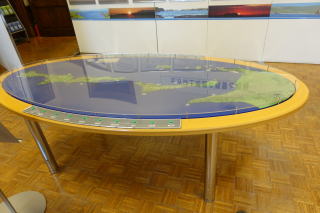
Former Hokkaido Government Office Building: Red-Brick Northern Territories
Museum
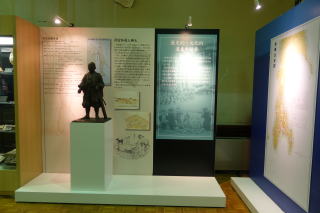 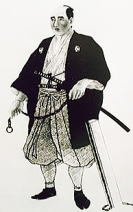 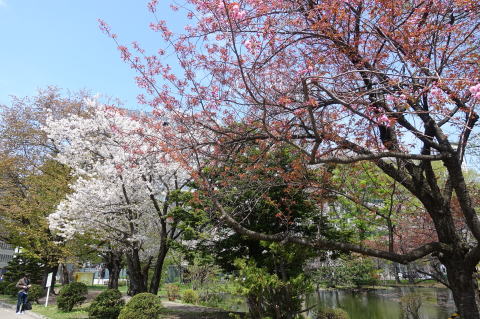
(L) Mamiya Rinzo, ิ{ ั , was a Japanese explorer of the late Edo period.
He is best known for his exploration and mapping of Sakhalin.
(R) A cherry blossom in the garden in Former Hokkaido Government Office
Building
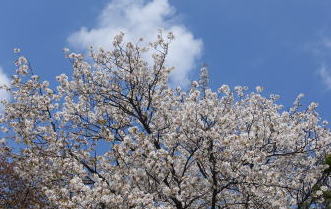 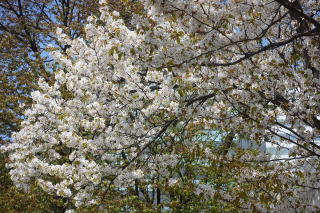 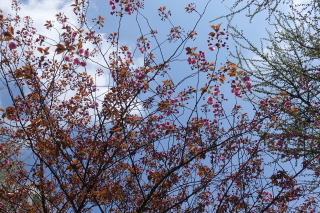
A cherry blossom in the garden of Former Hokkaido Government Office Building
The facility of the former Hokkaido Government Office is located in Sapporo.
Visitors can enter the building for free.
The Gallery of Hokkaido's History was designed to display panels, and is
a branch exhibition room of the Historical
Museum of Hokkaido. The Northern Island Related Resource Library shows
materials related to the South Chishima
Island, which is used to be the Japanese territory, and has been occupied
by Russia since the end of World War II.
Flower gardens@and a pond are located in front of the building.
 Former Hokkaido Government Office Building Former Hokkaido Government Office Building
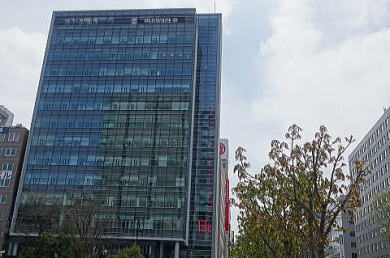 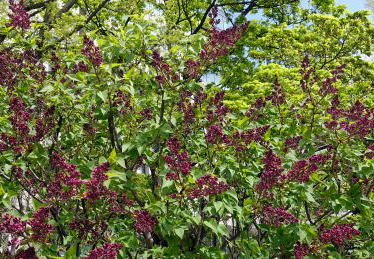
(L) The thermometer shows 13 in the air of this place on Odori Park
(R) Lilac flower: A Lilac Festival is usually held in Mid-May at Odori
Park of Sapporo.
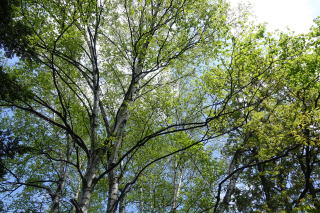 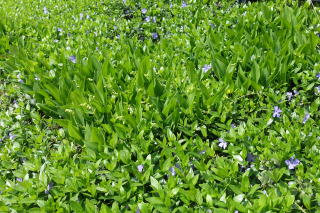 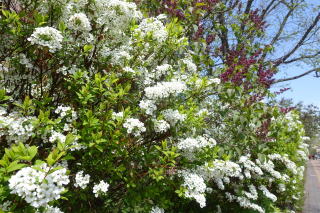
In May, Odori park is full with a rich natural sprout, colored by flowers.
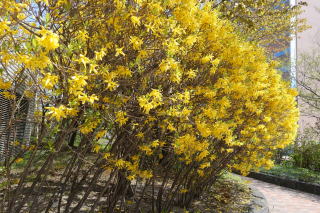 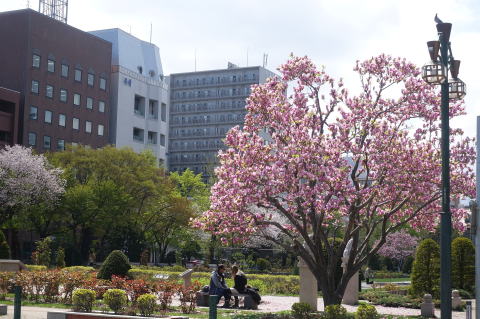
In May, Odori park is full with a rich natural sprout, colored by flowers.
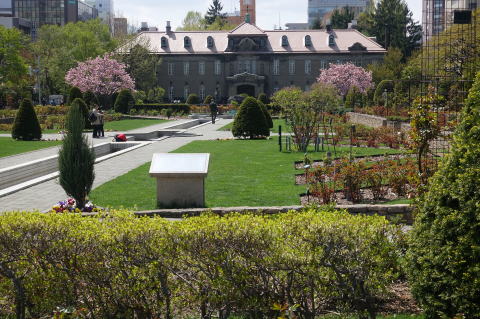 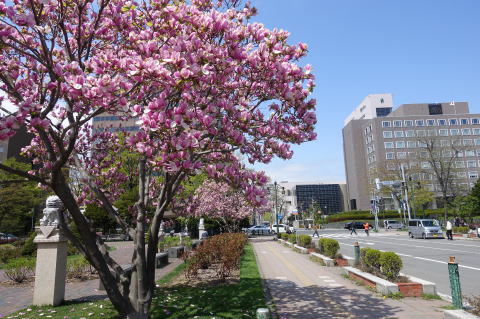
(L) Former Sapporo Court of Appeals (R) Red-purple magnolia in Odori Park
is in full bloom.
Sapporo is the fifth biggest city Japan by population, and the largest
city on Hokkaido.
It is the capital of Hokkaido Prefecture. The approximate city population
is 2,000,000, as of May 2018.
Hokkaido Shrine kCน_{
The Hokkaido Shrine, is a Shinto shrine located in Sapporo. Sited in Maruyama
Park,
the Hokkaido Shrine enshrines four 'kami' including the soul of the Emperor
Meiji.
A number of contributors of the Exploration in Hokkaido such as Mamiya
Rinzo are also enshrined.
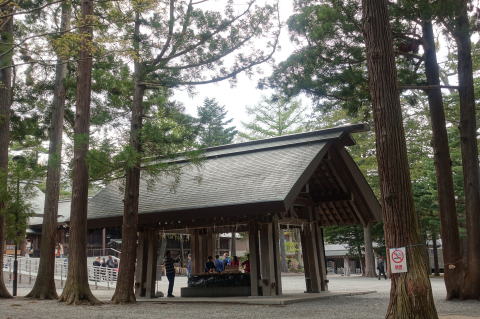 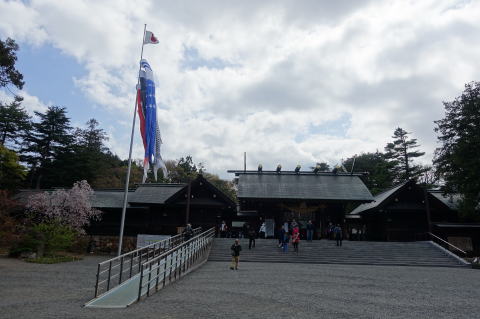
(L) Chozuya, Shinto water ablution pavilion (R) A carp streamer and the
main gate of Hokkaido Shrine
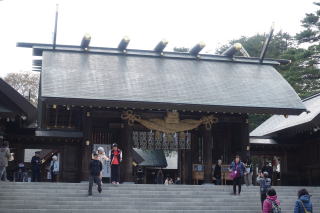 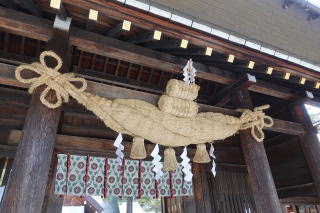
(L) Main Gate (R) Shimenawa, a sacred Shinto straw festoon
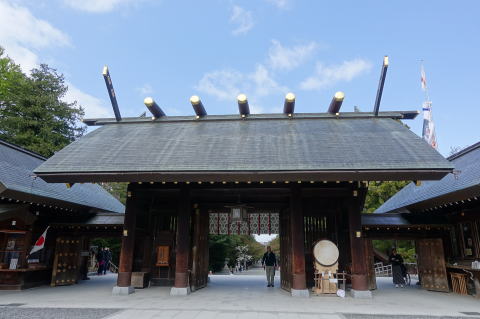 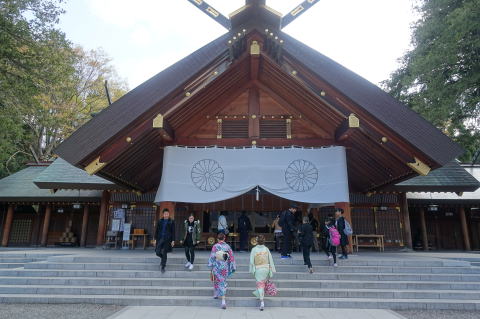
(L) Main Gate (R) Haiden( Hall of Worship )
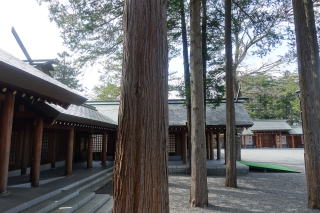 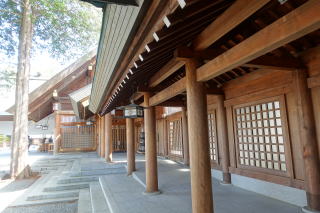 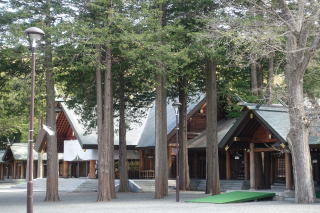
Corridor
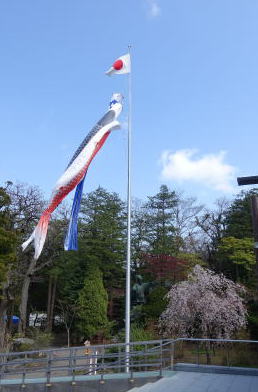 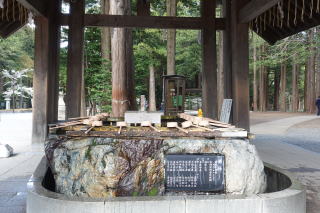 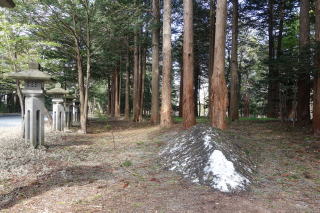
(L) A carp streamer (M) Chozuya (R) A snow was still remained on the Shrine
ground.
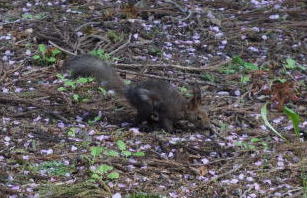 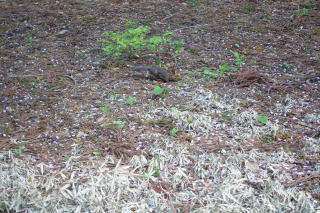 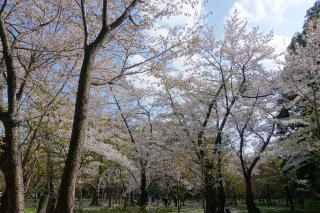
(L) A squirrel is searching foods on the ground of the Shrine. (R) Cherry
flowers are scattered by the wind.
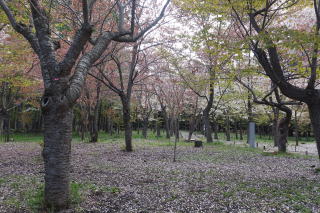 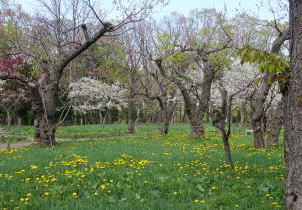 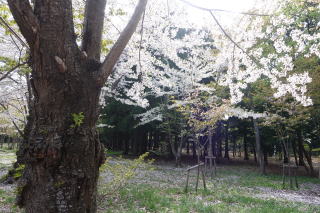
(L) It is filled the ground with scattered cherry blossoms.
(R) The Shrine ground is filled with light-pinkish cherry flowers and yellow
dandelion.
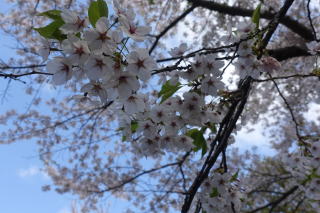 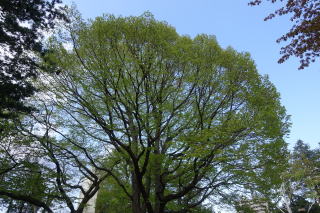
(L) A wild cherry tree (R) A fresh-green big tree, which extends to sky.
 The Hokkaido Shrine ( In Japanese ) The Hokkaido Shrine ( In Japanese )
Transportation in Sapporo
The Sapporo Municipal Subway is a mostly-underground rubber-tires metro
system in Sapporo. Operated by
the Sapporo City Transportation Bureau, it is the only subway system throughout
the island of Hokkaido.
All lines through the subway use rubber-tires trains that travel on two
flat roll ways, guided by a single
central rail. This system is unique among subways in Japan and the rest
of the world.
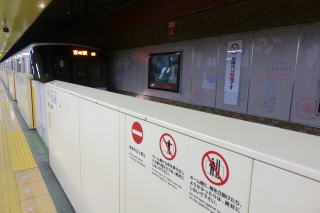 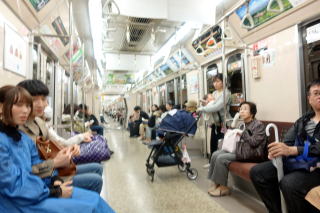 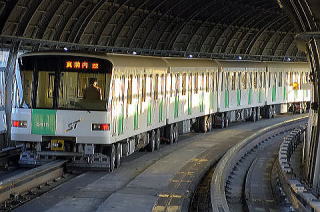
(L) Sapporo subway station, Odori (M) Interior of the subway train: No
cooling system
(R) Sapporo subway guide rail and flat steel rollways ( Picture source: Wikipedia)
The Sapporo Streetcar is a tram network located in Sapporo. The system
is sometimes referred to by residents
as simply the 'shiden'. It was electrified in 1918. The Transportation
Bureau took over the network in 1927.
At its peak in 1958, the network was 25 kilometers in length with 11 lines and seven routes. The lines were
combined into a single circle route following the opening of the link between
Susukino and Nishi-Yon-Chome
in December 2015.
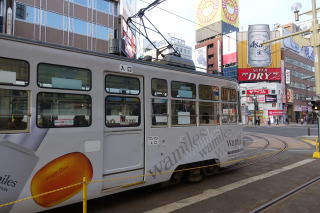 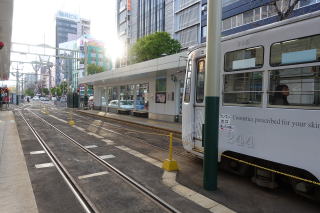 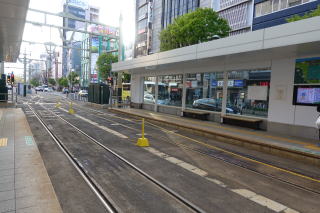
(L) Sapporo's tramcar runs on the circle route. (R) Susukino stop
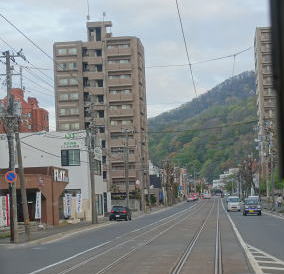 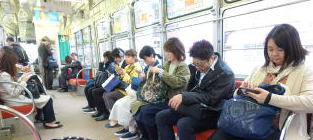 @ @  @ @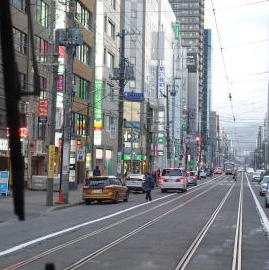
(L) A tramcar is running in the direction of south. (M) Interior of tramcar
(M) A free rental service of an umbrella
(R) A tramcar is running in the direction of north.
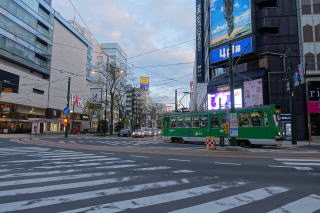 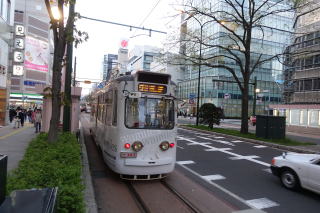 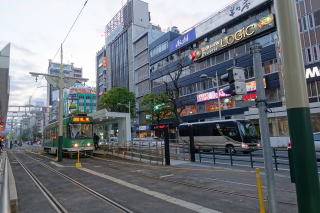
(L) A tramcar is passing around Nishi-4-choume (M) A tramcar runs between Susukino and Nishi-4-choume
(R) Tram stop at Susukino
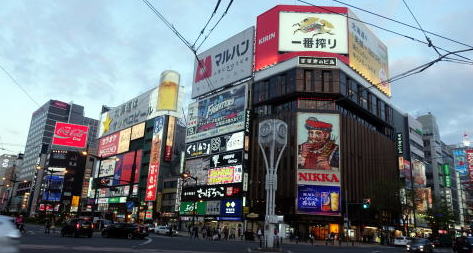 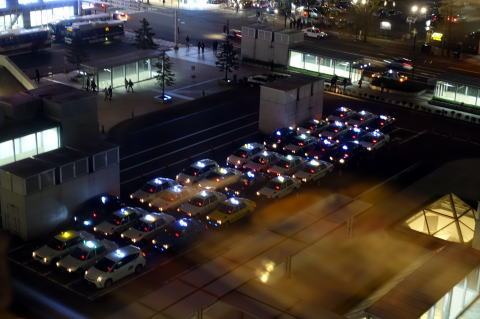
(L) Susukino, the entertainment district of Sapporo
(R) Taxi lines up in front of Sapporo station without clearance.
There are few customers, and the taxi industry in Hakodate appears to be
pressed for an extremely painful management.
Sapporo station building
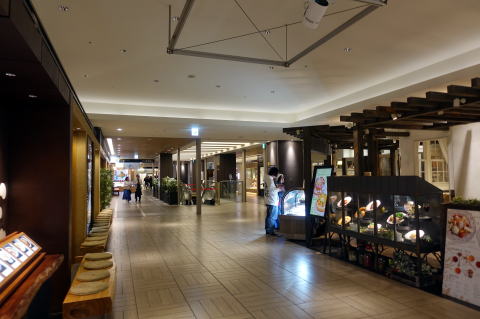 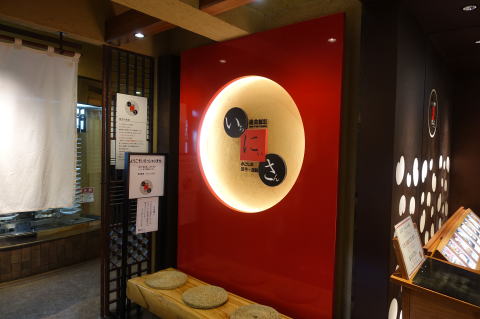
All food stores of Station Building, Stellar Place Center, is smoke-free,
except for a designated smoking room on the sixth floor.
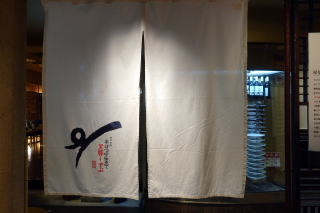 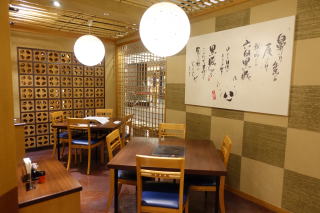 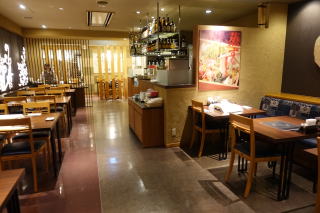
A black-pork shabu-shabu store, Ichinisan
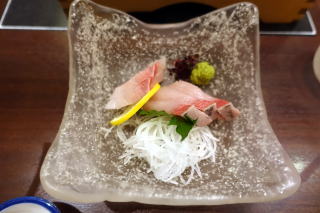 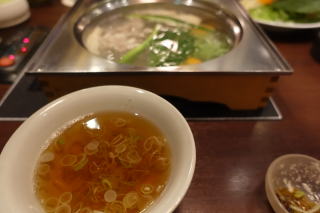 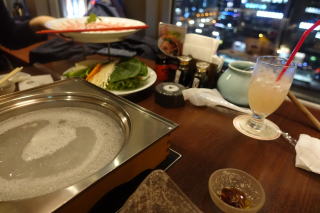
Dishes served in the black-pork shop, Ichinisan
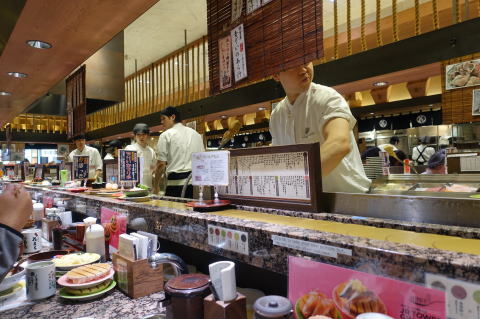 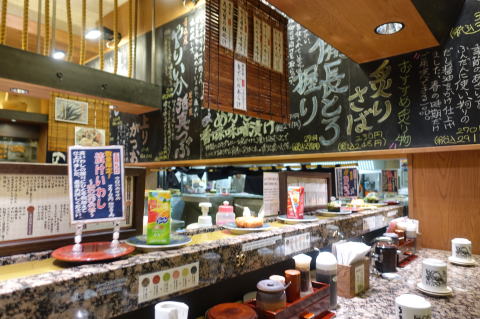
Nemuro Hanamaru
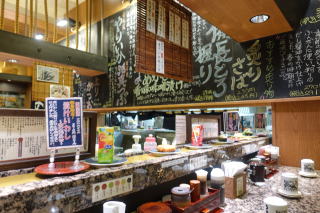 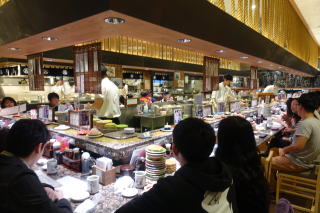 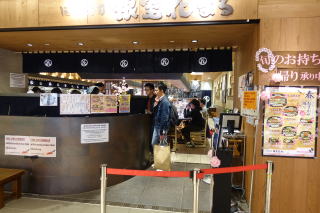
Nemuro Hanamaru
 Nemuro Hanamaru Nemuro Hanamaru
Asahikawa, Sapporo and Hakodate, Hokkaido
 Asahikawa station Asahikawa station  Asahiyama zoo Asahiyama zoo  Sapporo tour Sapporo tour  Railway trip: Sapporo to Hakodate Railway trip: Sapporo to Hakodate
 Hakodate, Hokkaido Mount Hakodate and Goryokaku Hakodate, Hokkaido Mount Hakodate and Goryokaku
 Smoke-free hotels in Sapporo Smoke-free hotels in Sapporo
 New Chitose International Airport New Chitose International Airport
 Smoke-free hotels in Japan Smoke-free hotels in Japan
 Smoke-free hotels in Tokyo Smoke-free hotels in Tokyo
 Smoke-free hotels in Kyoto and Nara Smoke-free hotels in Kyoto and Nara
 Jozankei hot-spring Jozankei hot-spring
 Domestic travel in Japan Domestic travel in Japan
 Stress-free travel in Tokyo Metropolitan and Kyoto area Stress-free travel in Tokyo Metropolitan and Kyoto area
 How to protect you from toxic tobacco smoke when you use a restaurant
in Japan. How to protect you from toxic tobacco smoke when you use a restaurant
in Japan.
 Travel sketch in Japan and the world in respect to smoking regulations Travel sketch in Japan and the world in respect to smoking regulations
 Dysเ Dysเ
 ทM@ใwm {{ ทM@ใwm {{
This Web site is link-free.
This information was provided by the Smokefree Hotel and Travel.
The article was writtenand photography was taken in May 2018, by Junhaku
Miyamoto, M.D., PhD.
Copyright (C) 2018 Junhaku Miyamoto, PhD. All right is reserved.
|